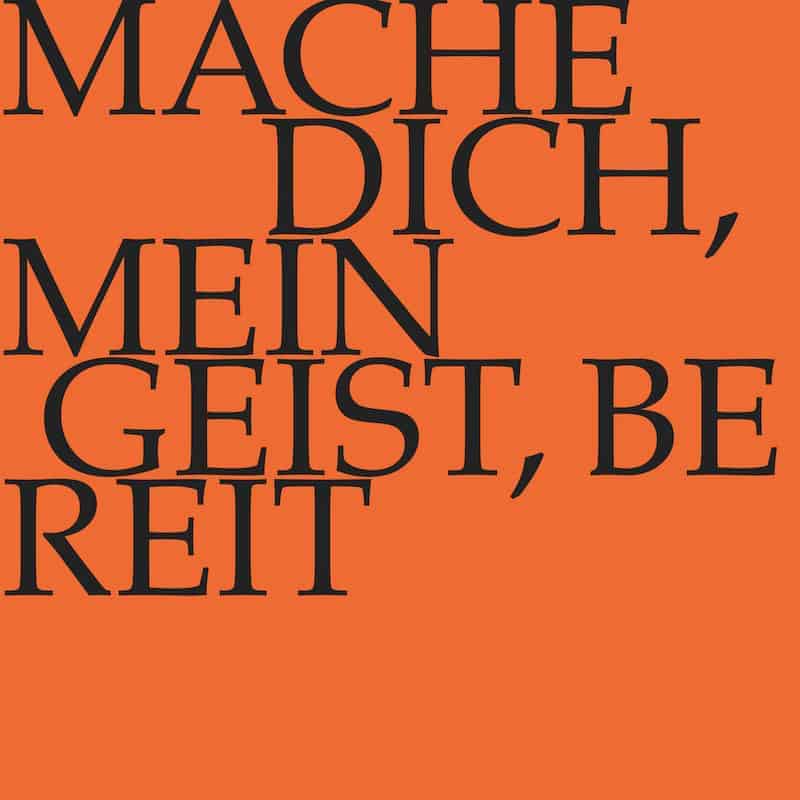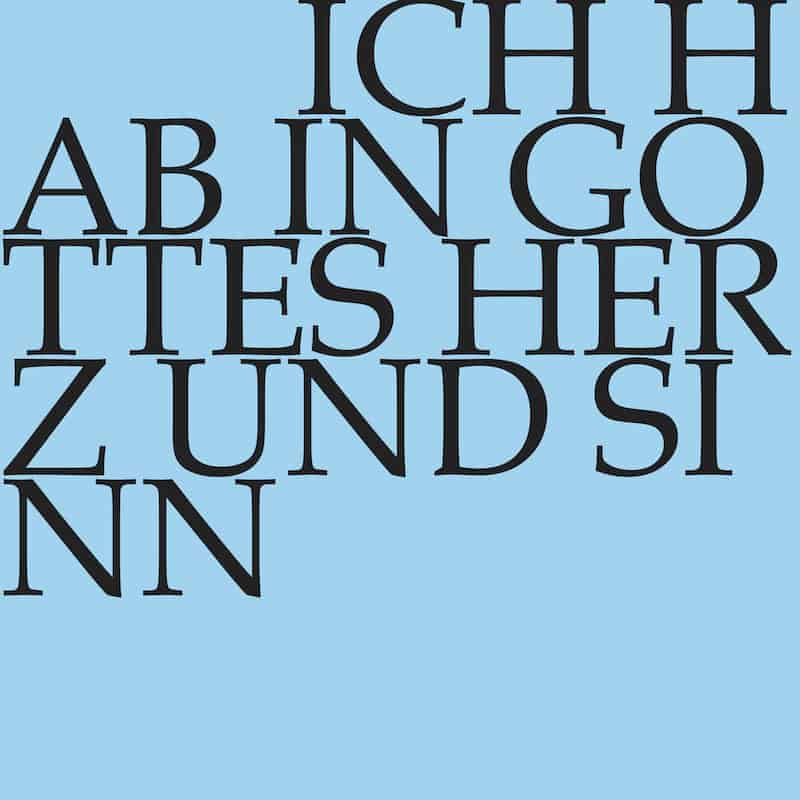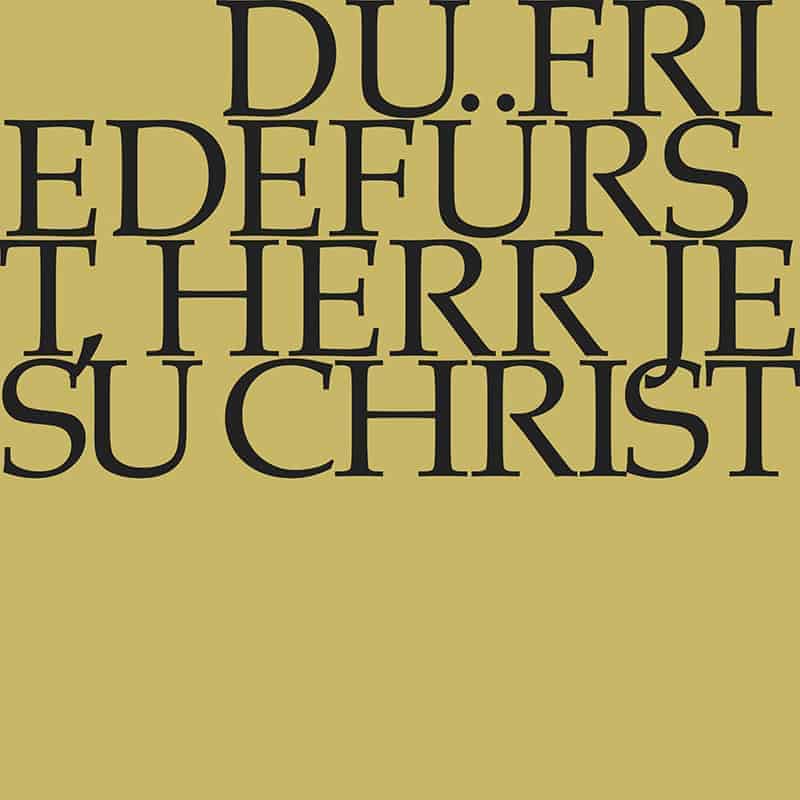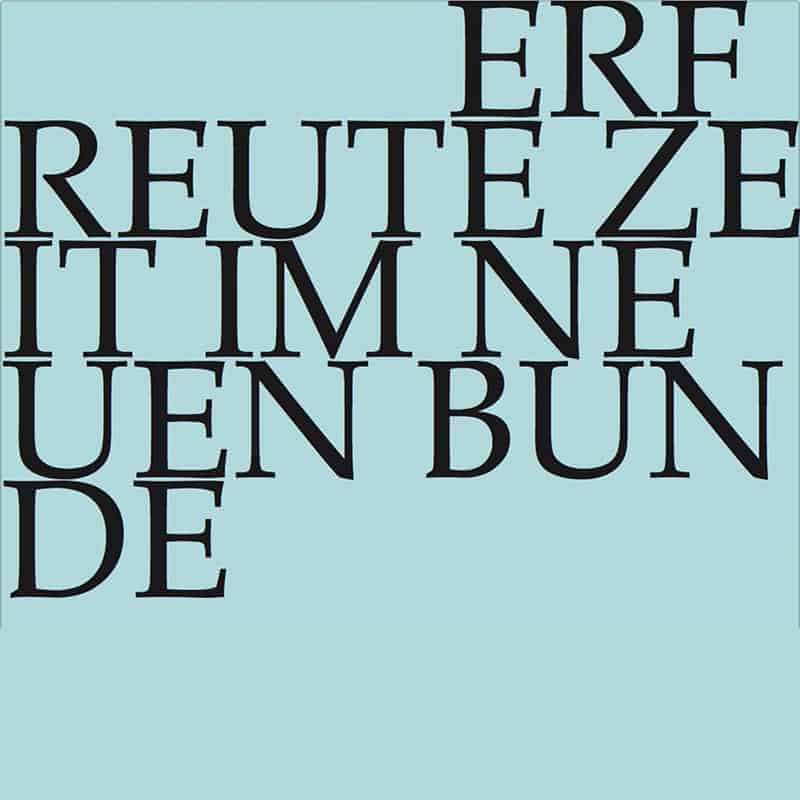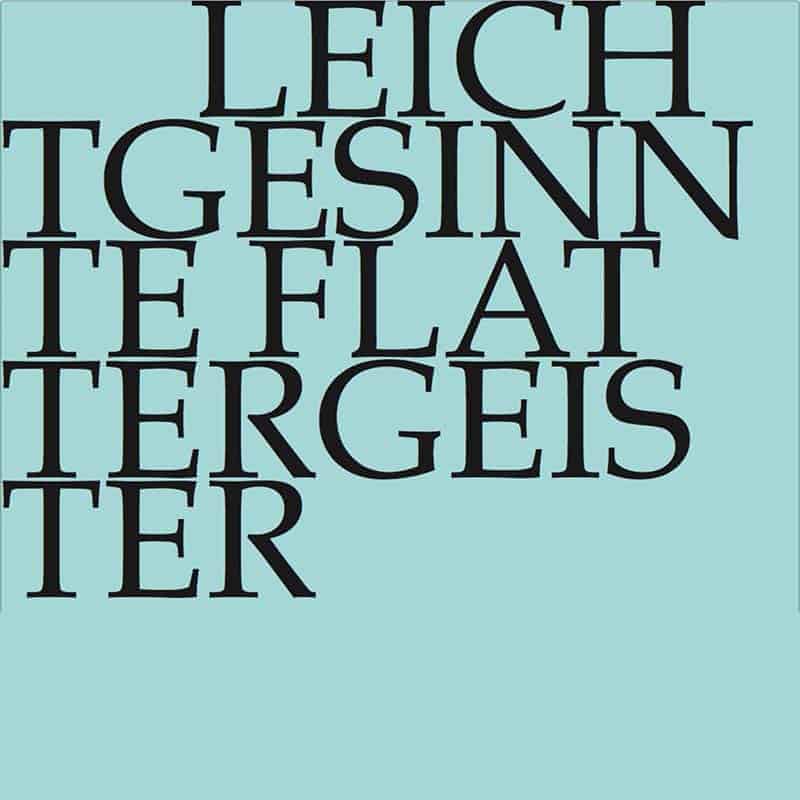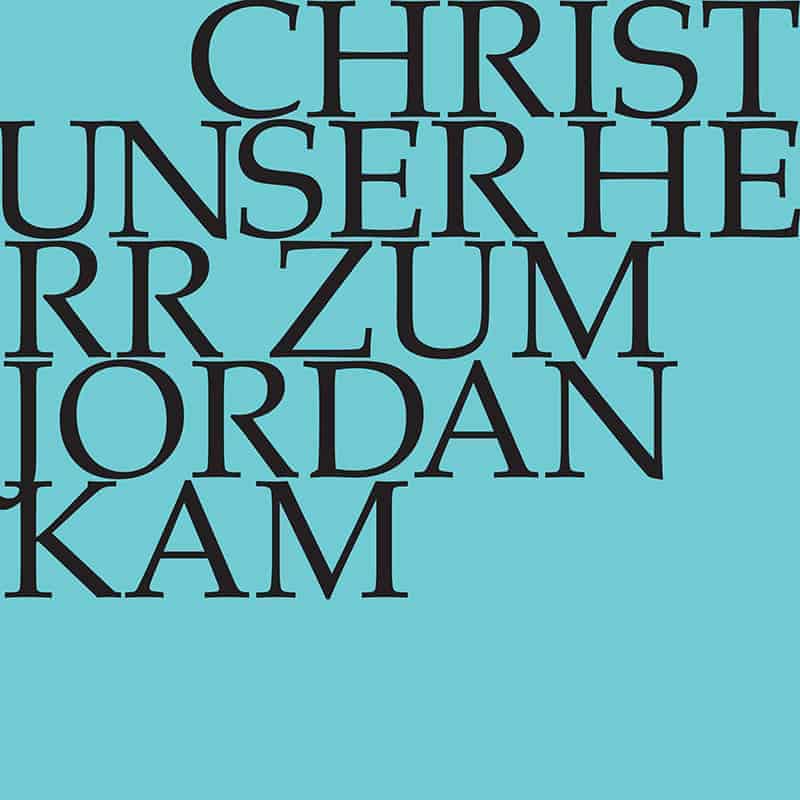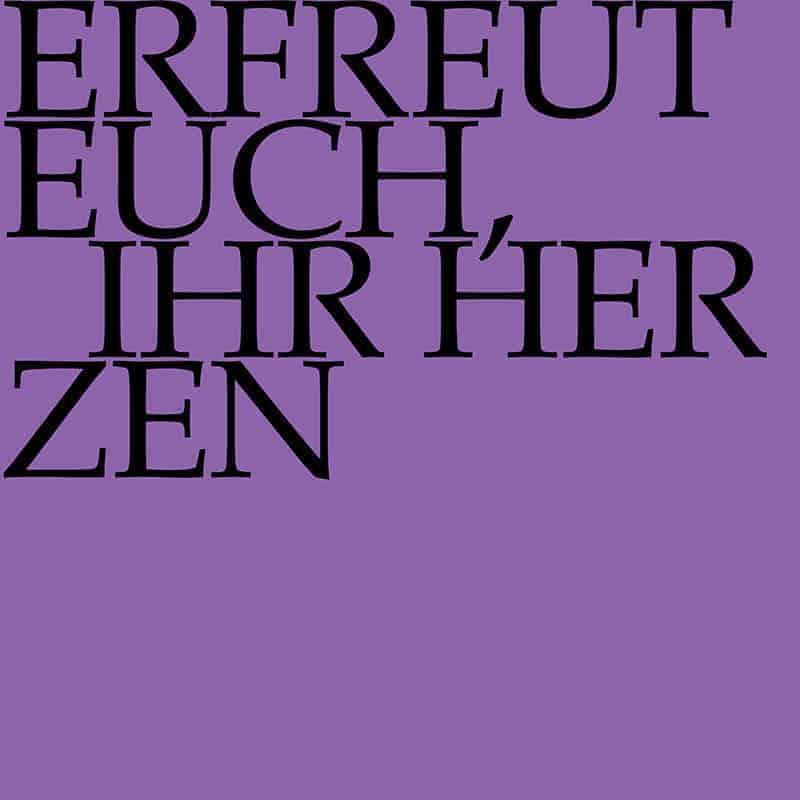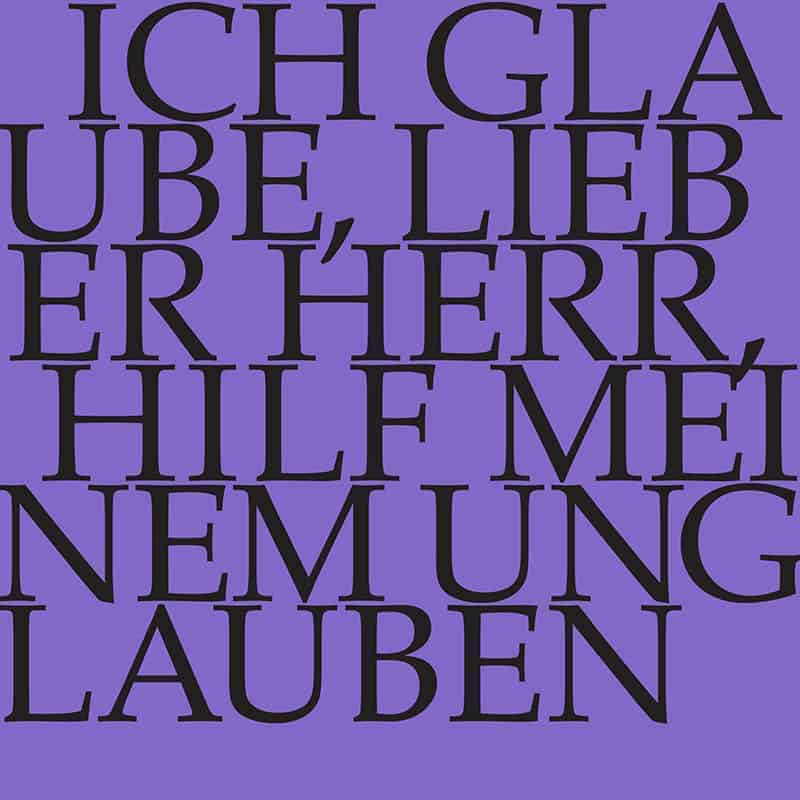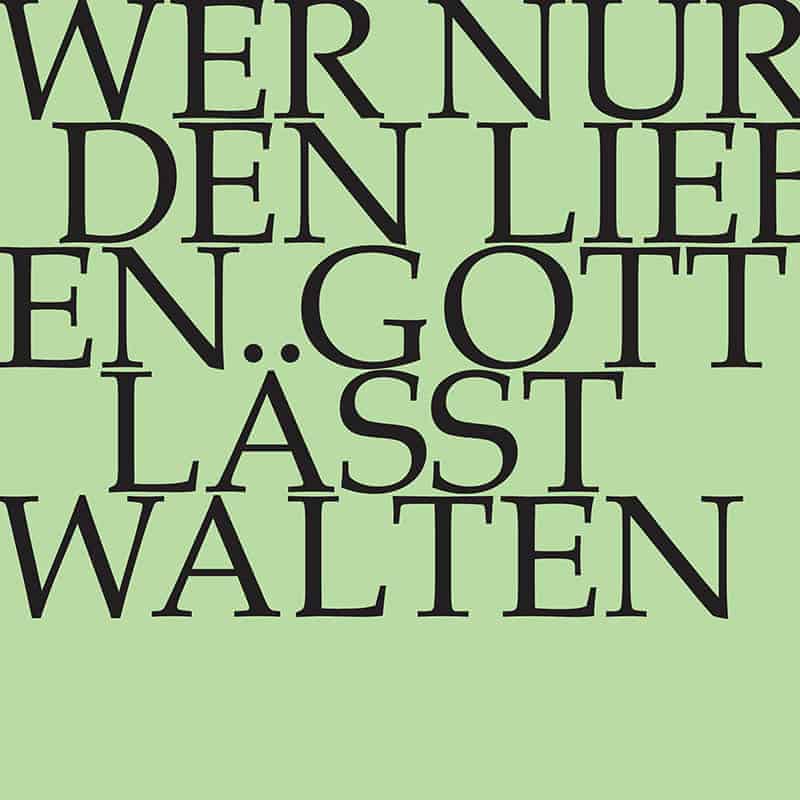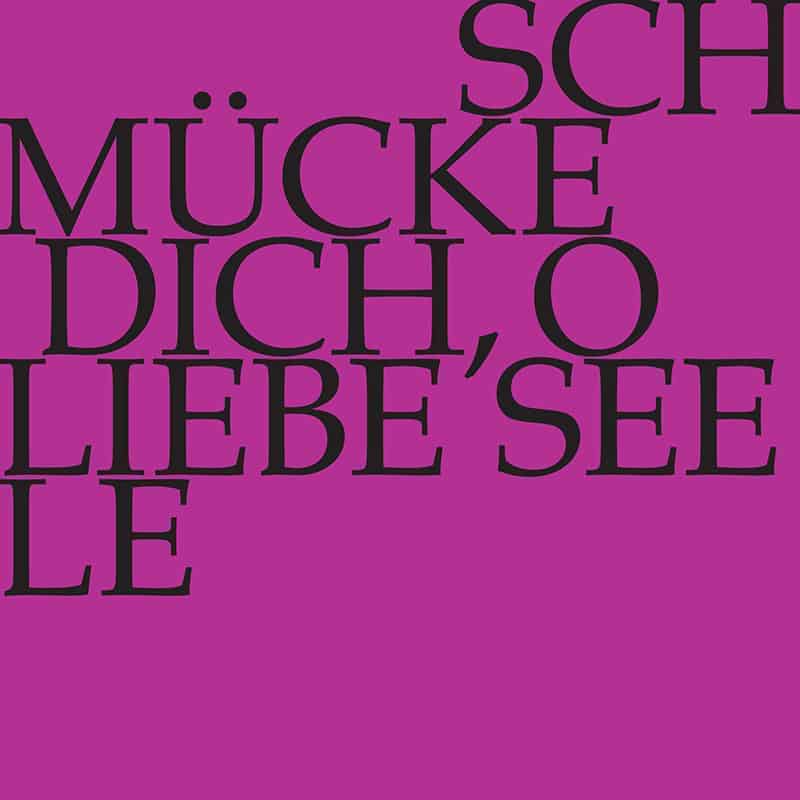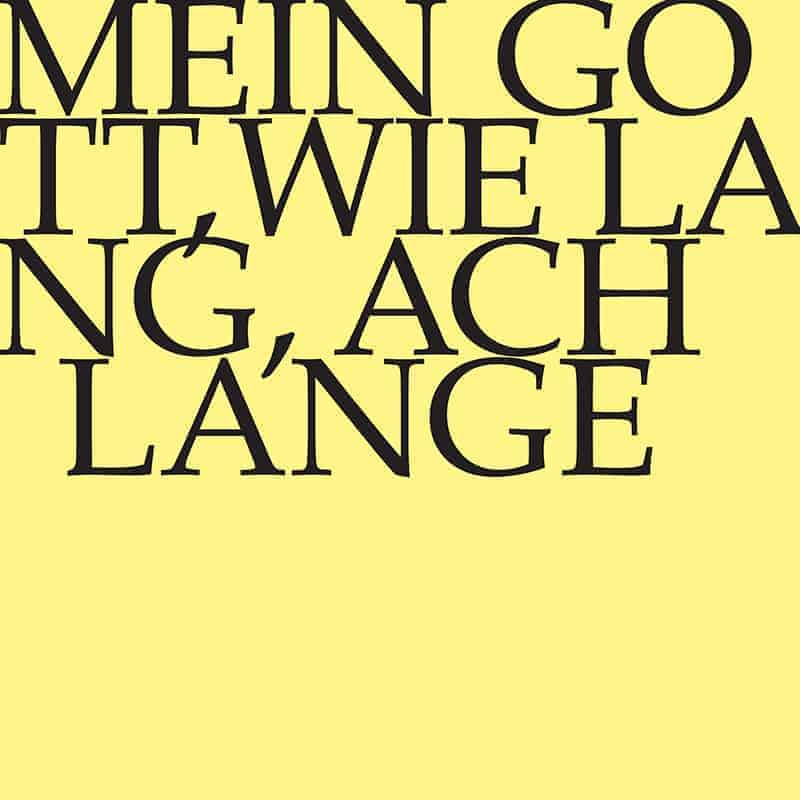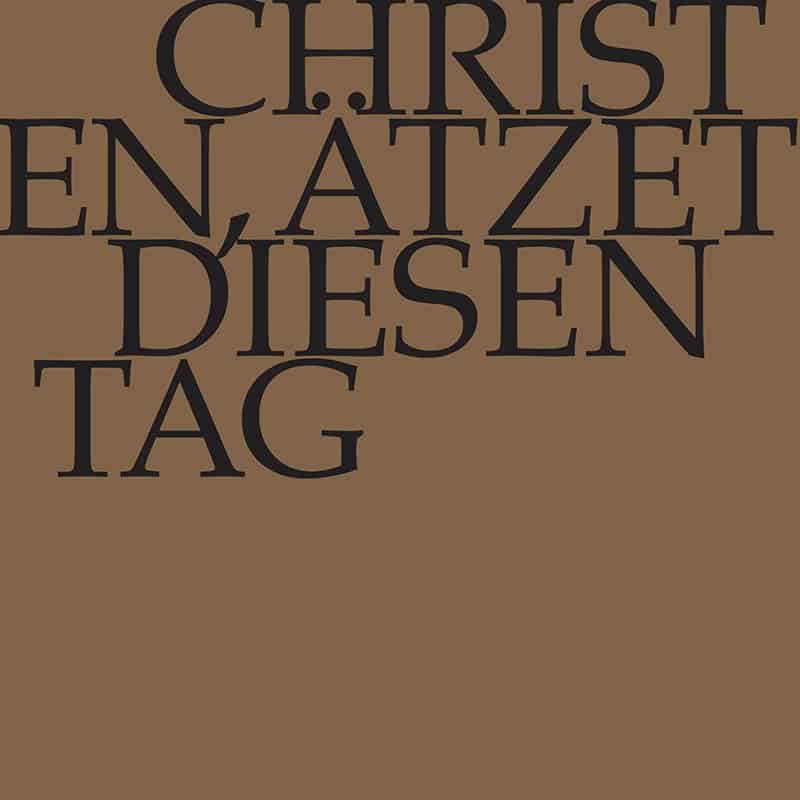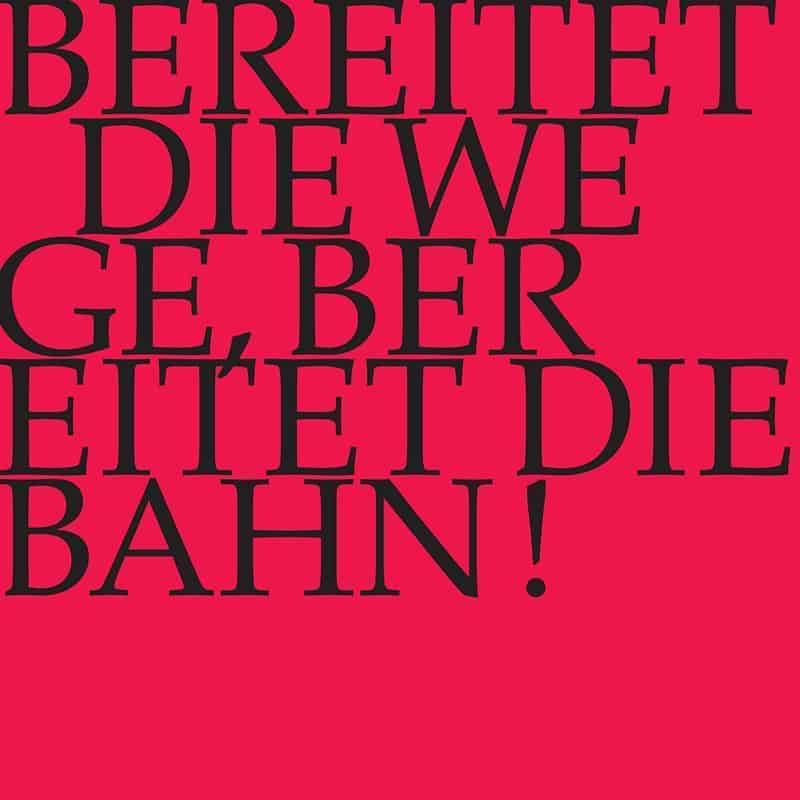(Get thyself, my soul, prepared) for soprano, alto, tenor and bass, vocal ensemble, transverse flute, oboe d’amore, horn, violoncello piccolo, strings and basso continuo
Archives
Ich hab in Gottes Herz und Sinn
(I have to Godís own heart and mind) for soprano, alto, tenor and bass, vocal ensemble, oboe díamore I+II, strings and bassos continuo
Du Friedefürst, Herr Jesu Christ
(Thou Prince of peace, Lord Jesus Christ) for soprano, alto, tenor and bass, vocal ensemble, corno, oboe d’amore I+II, strings and basso continuo Composed in 1724, cantata BWV 116 is the part of Bach’s cantata cycle dedicated to the twentyfifth Sunday after Trinity. The work’s timeless entreaty for peace and deliverance from penury and retribution … Read More
Erfreute Zeit im neuen Bunde
(O joyous day of the new order) for alto, tenor and bass, vocal ensemble corno I+II, oboe I+II, violino concertato, strings and basso continuo
Leichtgesinnte Flattergeister
(Insincere and fickle spirits) for soprano, alto, tenor and bass, transverse flute, trumpet, oboe, bassoon, strings and basso continuo
Christ unser Herr zum Jordan kam
(Christ did our Lord to Jordan come) for alto, tenor and bass, vocal ensemble, oboe d‘amore I+II, bassoon, strings and continuo According to Lutheran doctrine, baptism – in addition to communion and penance – belongs to the three sacraments introduced by Jesus and thus to the sacred rites practised by Lutherans after the Reformation. For … Read More
Erfreut euch, ihr Herzen
(Rejoice, all ye spirits) for alto, tenor and bass, vocal ensemble, trumpet, oboe I+II, bassoon, strings and continuo Written in Leipzig, Bach’s Easter cantata BWV 66 (preserved in its 1731 version) is a sacred parody based on a Cöthen serenade of 1718. Bach opens the work by taking the spectacular closing movement of the original … Read More
Ich glaube, lieber Herr, hilf meinem Unglauben
(I have faith, O dear Lord, help my unbelieving) for alto and tenor, vocal ensemble, corno da caccia, oboe I+II, strings and continuo The introductory chorus to cantata BWV 109, “Ich glaube, lieber Herr” (I have faith, O dear Lord) is one of Bach’s most memorable compositions on a Bible dictum.
Wer nur den lieben Gott läßt walten
(The man who leaves to god all power) for soprano, alto, tenor and bass, vocal ensemble, oboe I+II, strings and continuo Composed for the Fifth Sunday after Trinity in 1724, the cantata “Wer nur den lieben Gott läßt walten” (The man who leaves to God all power) at first appears to be a typical representative … Read More
Schmücke dich, o liebe Seele
(Deck thyself, O soul beloved) for soprano, alto, tenor and bass, vocal ensemble, recorder I+II, flute, oboe, oboe da caccia, bassoon, strings and continuo. The two great Bach experts Robert Schumann and Felix Mendelssohn must have mused one day over Bach’s famous organ chorale “Schmücke dich, o liebe Seele” (BWV 654). As later recalled by … Read More
Mein Gott, wie lang, ach lange
(My God, how long, how long then?) for soprano, alto, tenor and bass, basoon, strings and continuo.
Christen, ätzet diesen Tag
(Christians, etch ye now this day) for soprano, alto, tenor and bass, vocal ensemble, trumpets I-IV, timpani, oboe I-III, bassoon, strings and continuo. In 1957, Bach specialist Alfred Dürr wrote that BWV 63, more than any other of Bach’s cantatas, strives to unify the highest intensity of magnificence with the maximum level of economy. Indeed, … Read More
Bereitet die Wege, bereitet die Bahn!
(Make ready the pathways, make ready the road!) for soprano, alto, tenor, bass, oboe, bassoon, strings and continuo. Written in 1715, Bach’s Weimar cantata for the Fourth Sunday in Advent “Bereitet die Wege, bereitet die Bahn” (Make ready the pathways, make ready the road!) BWV 132 is scored primarily for four voices, strings and continuo. … Read More


